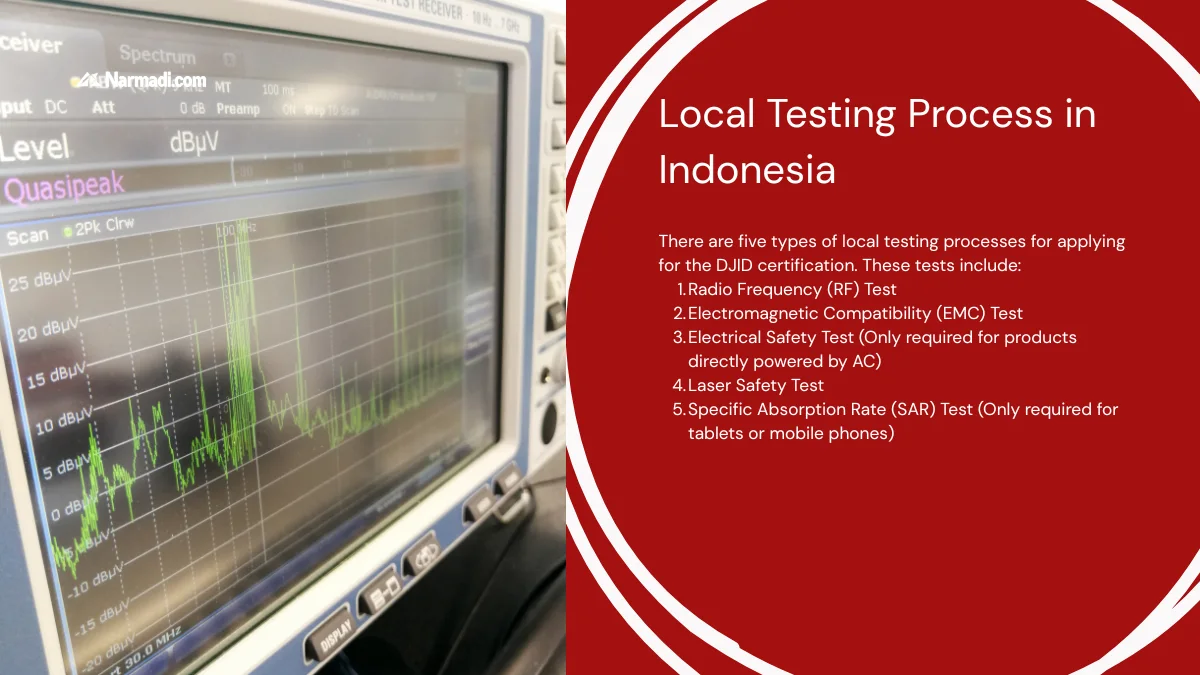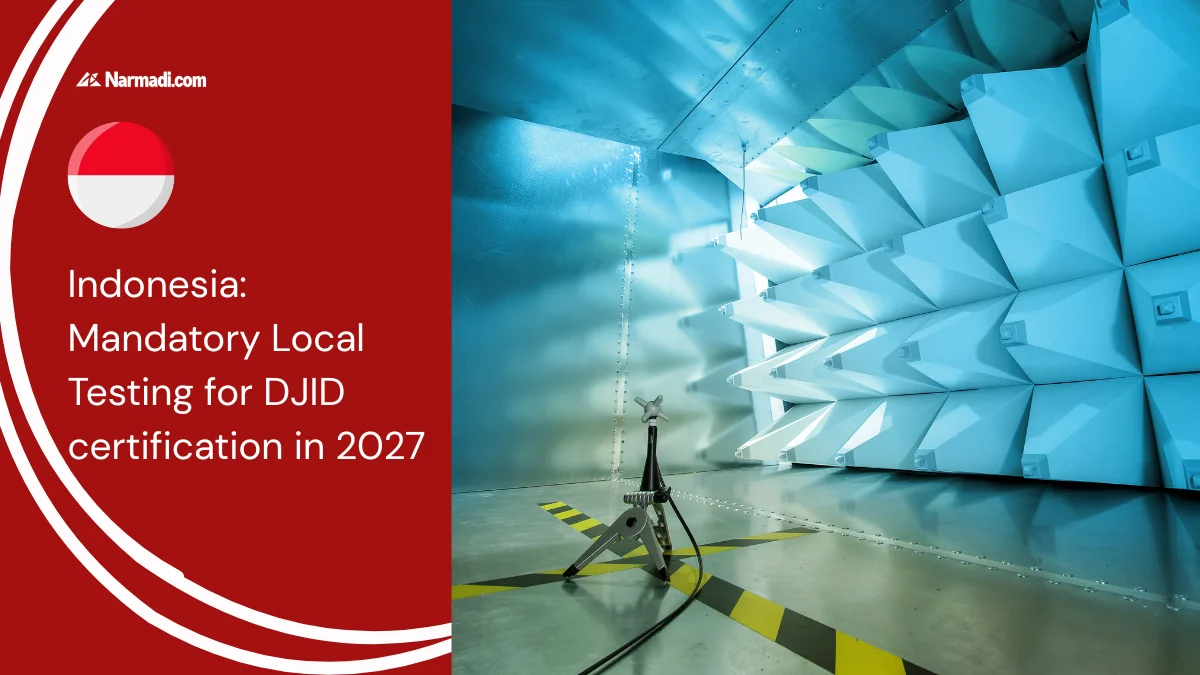Through the Ministry of Communications and Digital (KOMDIGI), Indonesia is preparing to strategize on conducting all local testing on Information and Communication Technology (ICT) devices for Directorate General of Digital Infrastructure (DJID) certification by 2027.
The commitment to conduct all local testing on ICT devices for DJID certification was conveyed by Minister Meutya Hafid while visiting the Indonesia Digital Test House (IDTH) in the Tapos area, Depok, West Java, on Wednesday, July 4, 2025. “Today’s visit is to ensure that,, according to the roadmap, at the end of 2026, God willing, the testing of telecommunications devices can mostly or almost entirely be done in the country,” said Meutya Hafid.
Previously, some manufacturers or importers depended on international laboratories to test ICT devices due to limited domestic infrastructure. However, with the establishment of the Indonesia Digital Test House (IDTH), the government is now striving to conduct all local testing on ICT devices for DJID certification in order to become a key pillar in Indonesia’s broader digital sovereignty roadmap.
Purpose of Conducting All Local Testing on ICT Devices for DJID Certification
The plan is to conduct all local testing on ICT devices for DJID certification, one of which is aimed at reducing dependence on foreign testing laboratories.
Therefore, the government, through KOMDIGI, accredits local testing facilities under the Balai Pengujian Dalam Negeri (BUDN) to ensure all local testing results are scientifically valid, reproducible, and internationally recognized.
Another effort by the government is to designate IDTH and other accredited facilities as official testing centers in coordination with the National Standardization Agency (BSN). The ministry will also ensure all processes conform to global benchmarks for quality and reliability.
All of the government’s goals are ultimately to strengthen the domestic ICT industry to encourage its independence. When all local testing is done, of course, the certification path becomes more efficient and cheaper for industry players.
Local Testing Process in Indonesia

Local testing in Indonesia is currently not the only path to DJID certification. Considering that local testing will be mandatory in the future, it is important to understand the entire process.
There are five types of local testing processes for applying for the DJID certification. These tests include:
- Radio Frequency (RF) Test
- Electromagnetic Compatibility (EMC) Test
- Electrical Safety Test (Only required for products directly powered by AC)
- Laser Safety Test
- Specific Absorption Rate (SAR) Test (Only required for tablets or mobile phones)
RF testing has four parameters as references: frequency range, output power, bandwidth, and spurious emissions.
Sample requirements
Conducting local testing requires submitting samples. In Indonesia, there are at least two types of sample conditions required for testing: conducted and radiated.
Conducted samples are required for devices that require special configurations to emit radio frequencies. All samples with RF features must meet these requirements.
Radiated samples, on the other hand, are used to test devices that can directly emit radio frequencies when turned on. This condition is used for samples with low-frequency RF features, EMC testing, electrical safety, and laser safety.
Testing Lab
Discussing local testing means relating to testing laboratories. In Indonesia, the establishment of local testing laboratories is regulated by Ministerial Regulation Number 16 of 2018.
The following is a list of Indonesian laboratories that can be used for local testing.
| No | In-Country Lab Name | Address | Testing Scope |
| 1 | Balai Besar Pengujian Perangkat Telekomunikasi (BBPPT), Direktorat Jenderal Sumber Daya dan Perangkat Pos dan Informatika | Jalan Raya Tapos No. 46 Tapos, Depok 16457 | Electrical Safety, EMC, RF |
| 2 | PT. Hyundai Calibration and Certification Technologies Indonesia | Jalan Terusan I Gusti Ngurah Rai Nomor 10, RT.10/RW.11, Kel Pondok Kopi, Kec. Duren Sawit, Jakarta Timur | RF, EMC, Electrical Safety |
| 3 | Laboratorium PT. TUV Rheinland Indonesia | Infinia Park Blok A56, B92-93, JL. DR. Sahardjo No. 45 Jakarta 12850 | Electrical Safety (Leaked Current and Overvoltage) |
| 4 | Laboratorium Penguji PT. Qualis Indonesia | Jl. Pajajaran No.17 Desa Gandasari Kec. Jati Uwung Tangerang Banten 15137 | EMC, SRD, Bluetooth, WLAN 2.4 GHz, WLAN 5.8 GHz, RF |
| 5 | Laboratorium Penguji PT. Hartono Istana Teknologi, Sub Lab Electronic & RF | JL. KHR. ASNAWI PO. BOX 126, BAKALAN KRAPYAK, KALIWUNGU, KUDUS, JAWA TENGAH 59332 | RF |
| 6 | Laboratorium Sentral Operasi Cibitung PT. Sucofindo (Persero) | Jln. Arteri Tol Cibitung No 01 Cibitung Bekasi 17520 | Electrical Safety, Perangkat HF/VHF/UHF, Seluler (GSM, WCDMA, LTE), Receiver DVB-T2, Bluetooth, WLAN, Laser Safety |
| 7 | Laboratorium Elektronika dan EMC Balai Besar Bahan dan Barang Teknik (B4T) | Jl Sangkuriang No.14 Bandung, Jawa Barat 40135 | EMC, Electrical Safety, Seluler (GSM, WCDMA, LTE), Bluetooth, WLAN, SRD |
| 8 | Laboratorium Pengujian PT. Bureau Veritas Consumer Products Services | Gedung KKM Lantai 3, Jalan Cideng Timur No. 38, Gambir Jakarta 10130 Indonesia | Seluler (GSM, WCDMA, LTE), Bluetooth, WLAN, Receiver DVB-T2, SRD, RF, Electrical Safety |
| 9 | Laboratorium Penguji PT. Hartono Istana Teknologi, Sub Lab Electronic & RF | JL. KHR. ASNAWI PO. BOX 126, BAKALAN KRAPYAK, KALIWUNGU, KUDUS, JAWA TENGAH 59332 | Seluler (GSM, WCDMA, LTE), Bluetooth, WLAN, Receiver DVB-T2, LPWA, Electrical safety |
| 10 | Balai Standardisasi dan Pelayanan Jasa Industri (BSPJI) | Jl. Jagir Wonokromo No. 360 Surabaya, Jawa Timur 60244 | EMC, Electrical safety |
Please note that each laboratory has different testing capabilities. Therefore, a single device may be tested in one laboratory or in several different laboratories to meet testing needs.
Impact on Manufacturers and Importers

The plan to conduct all local testing on ICT devices for DJID certification will certainly impact manufacturers and importers, who will have to prepare for changes in compliance procedures.
The use of foreign test reports may be eliminated or restricted with certain exceptions, once domestic laboratories are accredited.
Here are some things that companies that want to enter the Indonesian market need to do in the future:
- For conformity assessment, IDTH or other accredited domestic laboratories can be utilized.
- BSN-accredited standards become the reference for product testing and documentation.
- Monitor updates from the Ministry regarding laboratory readiness and implementation of the latest regulations.
This regulatory update will certainly bring significant changes in market access requirements in Indonesia, such as the long-term certification timeline, cost structure, and operational planning.
Conclusion
All local testing on ICT devices for DJID certification will be carried out in stages until the end of 2026, and is expected to be fully operational by 2027.
This is done by KOMDIGI to reduce dependence on foreign testing laboratories and strengthen the domestic ICT industry to encourage its independence.
Greetings, planning to do all testing locally, and then there will be adjustments that must be made by manufacturers and importers to enter the Indonesian market.
Manufacturers should start conducting conformity assessments by utilizing IDTH or other accredited domestic laboratories and continue to monitor the development of information from the government.
To simplify the process of obtaining the DJID certification for distributors, importers, or brand representatives who wish to sell ICT products in Indonesia, you can contact us, which can be a solution for you. [UN]

